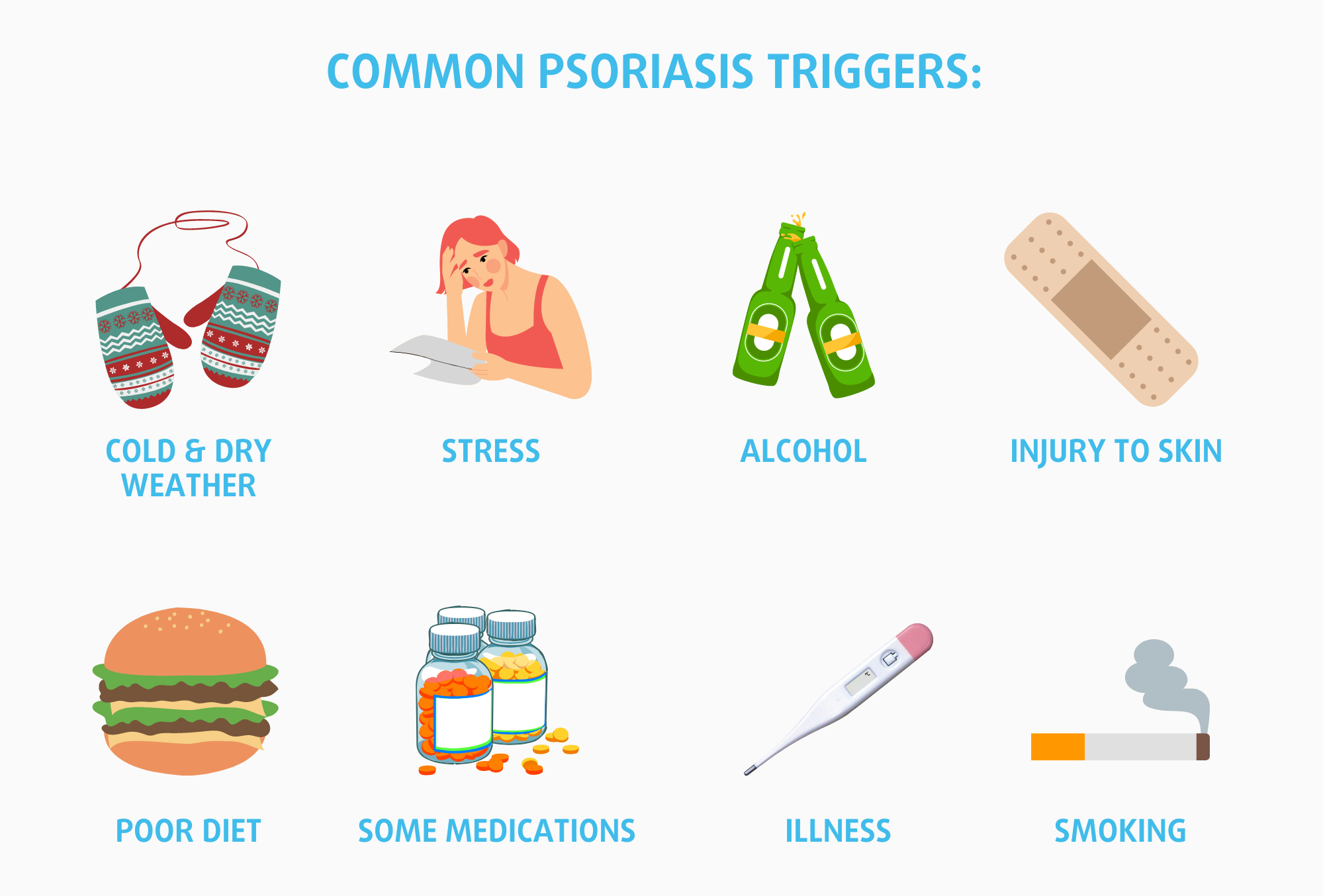What is Psoriasis?
Psoriasis is an autoimmune condition that commonly presents itself in the form of scaling and redness of the skin. Psoriasis occurs when there is an intensified production of the skin, accumulating in white patches on the knee, elbow and scalp areas. It can also have an impact on the joints but in most cases, outbreaks come in the form of patches known as psoriatic plaques. Contrary to popular belief, psoriasis is not the same as eczema (although often confused), and it is not contagious.
Symptoms & Types of Psoriasis
The symptoms associated with psoriasis are often confused with eczema, you can read more about eczema here. Typically the skin on the area affected by psoriasis comes with a silver or white color. Other symptoms may include:

A doctor should be able to diagnose psoriasis with a simple visual check up. There is no need to perform special tests or other medical procedures to diagnose this condition, however, if there are other symptoms present on the skin, doctors may conduct a skin biopsy.
Psoriasis Causes & Triggers
Modern medicine has still not identified the exact cause of this disease. However, it is commonly believed the immune system and genetics play key roles. The genetics of psoriasis are complex, and it is possible to develop psoriasis even if you have no family history of the disease. A triggering event may cause a change in the immune system, resulting in the onset of psoriasis symptoms.
While the exact cause is unknown, we are aware of a number of triggers that can cause psoriasis symptoms to flare. Triggers will vary from person to person, so it’s important to learn what your body needs to help manage this disease.

Types of Psoriasis
Just like many other skin conditions, psoriasis can come in different forms. Below are the most common types of the condition.
Treating Your Psoriasis
Every person dealing with psoriasis is different, as is the type and severity of psoriasis they are experiencing. Therefore it is highly recommended to consult a doctor before starting out on any new treatments.
Dermatologists can conduct a range of treatments, and will work with you to determine the best possible treatment for you.Typically, topical treatments are an effective treatment for those suffering from psoriasis.
Dermatologists will often recommend the use of specific moisturisers and bath treatments, which work to hydrate the skin, reduce redness and soothe the skin. Unfortunately, many of these treatments are chemical based and can cause additional irritation when used over an extended period of time.
Depending on the type and location of your psoriasis, treatments can vary. The Grahams Natural product range has been clinically developed with all natural products to help hydrate and soothe the skin.
Natural Ingredients
Topical steroids are one of the most common topical treatments for psoriasis. Things to keep in mind when using steroids for psoriasis include:
- Only apply the steroid cream on the affected area (and in small amounts)
- Topical steroids are most safe when used in short bursts. Don't use for longer than 3 weeks without consulting your health care provider.
- Refrain from abruptly discontinuing a topical steroid as it can cause your psoriasis to flare.
- Do not use topical steroids around the eye area unless it is specifically formulated for that area of the body
- The stronger the steroid, the more effective it is in clearing psoriasis, but the risk of side effects is greater.
- The risk of side effects is higher in sensitive areas of the body, such as the face, groin and breasts
At Grahams Natural, we believe in treating skin conditions with a natural approach instead. Our products are steroid-free and made with all-natural ingredients which make them safe to use. You’ll find that they quickly hydrate your skin, treat the inflammation, and treat the infection. Some ingredients we love:

Let's Chat
We’re happy and available to answer any questions you have or provide you with more information about your products. Please note, we try our best to respond to all inquiries within 48 hours, Monday - Friday. Contact us here.
Additional Information About Psoriasis:
National Psoriasis Foundation
The National Psoriasis Foundation (NPF) is a nonprofit organization with a mission to drive efforts to cure psoriatic disease and improve the lives of those affected.
Please note: The primary purpose of this page is to provide information regarding the skin condition psoriasis and not to provide medical advice or assistance. Content from this article has been sourced from reputable sources including American Academy of Dermatology Association, Health Line, NHS, and National Psoriasis Foundation.
Links to these pages will be available throughout the article to benefit the user and do not constitute medical advice or treatment recommendations.












